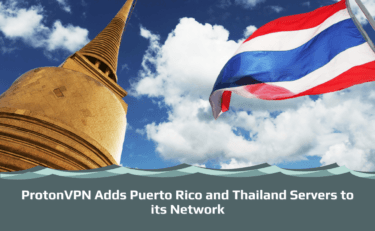We’ve all been there: you’re streaming a new action film that you’ve been wanting to see for a long time. Just as you are about to reach a pivotal moment in the movie, the video starts buffering, completely ruining all suspense and causing you to refresh your screen. Media buffering is usually a consequence of a slow connection speed and can be highly frustrating for streaming fans.
Not only can speed issues interfere with streaming, but slower speeds can cause problems with torrenting, gaming, and even working remotely. Many people report speed limitations when using a VPN (Virtual Private Network) which begs the question: why do VPNs slow down internet speeds?
The answer to that question is not so simple, especially since VPNs can both slow down and speed up internet speeds. However, if you are looking for a faster VPN speed, there are some things you can do so that your VPN doesn’t slow down your internet anymore.
Here is everything you need to know about why a VPN slows down internet speeds and how to resolve the issue.
Why is VPN Slowing Down Internet?
For some people, using a VPN is not optional; it’s necessary. If you work remotely from home or torrent and want to hide your download data from your Internet Service Provider (ISP) and prevent ISP bandwidth throttling, then a VPN is the best way to shroud your internet traffic from third-party eyes.
However, VPNs aren’t perfect and can drastically slow down your internet. Here are some reasons why:
- Encryption level: The encryption process of a VPN service can significantly affect your speed. To ensure that your internet traffic stays safe, it is sent through an encrypted VPN tunnel to another server for high security. However, this entire process can interfere with your regular internet speed and cause your VPN to be slow.
- Which VPN protocol you use: Protocols dictate how your web traffic is sent from your device to the VPN server, for example, factors such as the speed and how secured the data is.
- The VPN server location you use: Certain servers may cause a slow internet speed, especially if you connect to a server that is far away from your actual location. This increases the travel time of your data which can lead to lag.
- Server load: You might be wondering, how does a server load on a VPN slow down internet connection speeds? Simply put, the more users that are using the same VPN server at the same time, the more likely your VPN speed will be affected due to the massive amount of data being tunneled back and forth.
- Which VPN Service You Use: Some VPN services are better than others and spend more money on fast servers, advanced VPN features that aid with speed, and unlimited bandwidth. Free VPNs are well-known for data limits which can interfere with users enjoying a fast connection.
As you can see, there are plenty of reasons why using a VPN can slow down your internet speed. However, given all the security features that come with a VPN and the fact that a VPN hides your internet data to ensure you stay secure online, a slight dip in speed is worth advanced security.
How Do I Stop My VPN from Slowing Down My Internet Connection?
Now that you know the main reasons for a slow VPN speed, you can take steps to speed up your VPN connection.
- Adjust the encryption level: Most VPNs offer AES-256 bit encryption as a default, but with some VPNs, you can switch to AES-128 bit encryption. With AES-128 bit encryption, you can still enjoy a secure VPN connection, but you’ll enjoy a slightly faster connection.
- Switch protocols: Most VPN providers offer a variety of protocol options. The best security protocols like OpenVPN can sometimes cause a slower internet speed, but switching to a protocol such as L2TP/IPSec can make your VPN faster. For the fastest speeds, we recommend PPTP; however, be careful when using this protocol as it doesn’t provide the same level of security as other protocols.
- Connect to servers in different locations: If you are connected to a server at a distance, then it may be worth finding a closer server. For example, if you’re based in the US and connect to a server in South Korea, you’ll notice the distance slows down the internet speed. The closest server is usually the best server, and connecting to one near to your actual location will result in a faster internet speed.
- Connect to a server with a low user load: The difference between a fast VPN and a slow VPN is sometimes server loads. By switching servers to one with fewer users on it (and, therefore, less traffic), you’ll notice an increase in speed.
- Use a premium VPN service: For a choice of more servers and to avoid a slow internet connection, choose a premium service. Paid-for VPN services come with more server locations, faster speeds, excellent security, and can lower VPN latency all at once.
Does VPN Make Your Internet Faster?
You may be wondering, “how can a VPN slow down internet speeds and also speed them up?” Well, it is entirely possible! Some VPN providers are even known for increasing internet speed, especially if your internet provider often interferes with your network connection.
VPNs stop Internet Service Providers from seeing your traffic and throttling your bandwidth. Since VPNs encrypt your data, ISPs won’t be able to see your activity and purposefully slow down your speed if you’re streaming, torrenting, or gaming. This leads to faster download speeds, reduced latency while gaming, and seamless streaming.
Which VPN is Best to Increase Internet Speed?
So, which VPN provider is best for fast speeds? The short answer is a reputable premium VPN. As mentioned above, the best VPN for the fastest internet speed will be a premium service that offers plenty of servers for all of its customers, advanced features to reduce latency, and a choice of protocols to ensure that you can adjust your VPN speed.
We recommend NordVPN or Surfshark VPN, as both of these providers are well-known for reducing lag and offering an internet speed that is closest to your regular speed as possible.
How Can I Check if My VPN is Slow?
You can run a VPN speed test if you suspect that your VPN is too slow. The best way to see how much your internet connection has slowed down is to run an internet speed test before you have connected to the VPN server. Then, you can carry out a VPN speed test and check the difference.
A usual speed dip of around 2-4Mbps is normal. However, if you notice a drastic difference between the two speeds, then you may want to try switching servers again or use a new provider.
Remember, just because your VPN is slow once doesn’t mean that it always will be! External factors, such as your internet provider network and background programs, can also interfere with your overall VPN connection speed.

I’m Madeleine, and I'm a writer that specializes in cybersecurity, tech products, and all things related to the internet.
I have a keen interest in VPNs and believe that everyone deserves internet freedom and security. I wr...
Read more about the author

